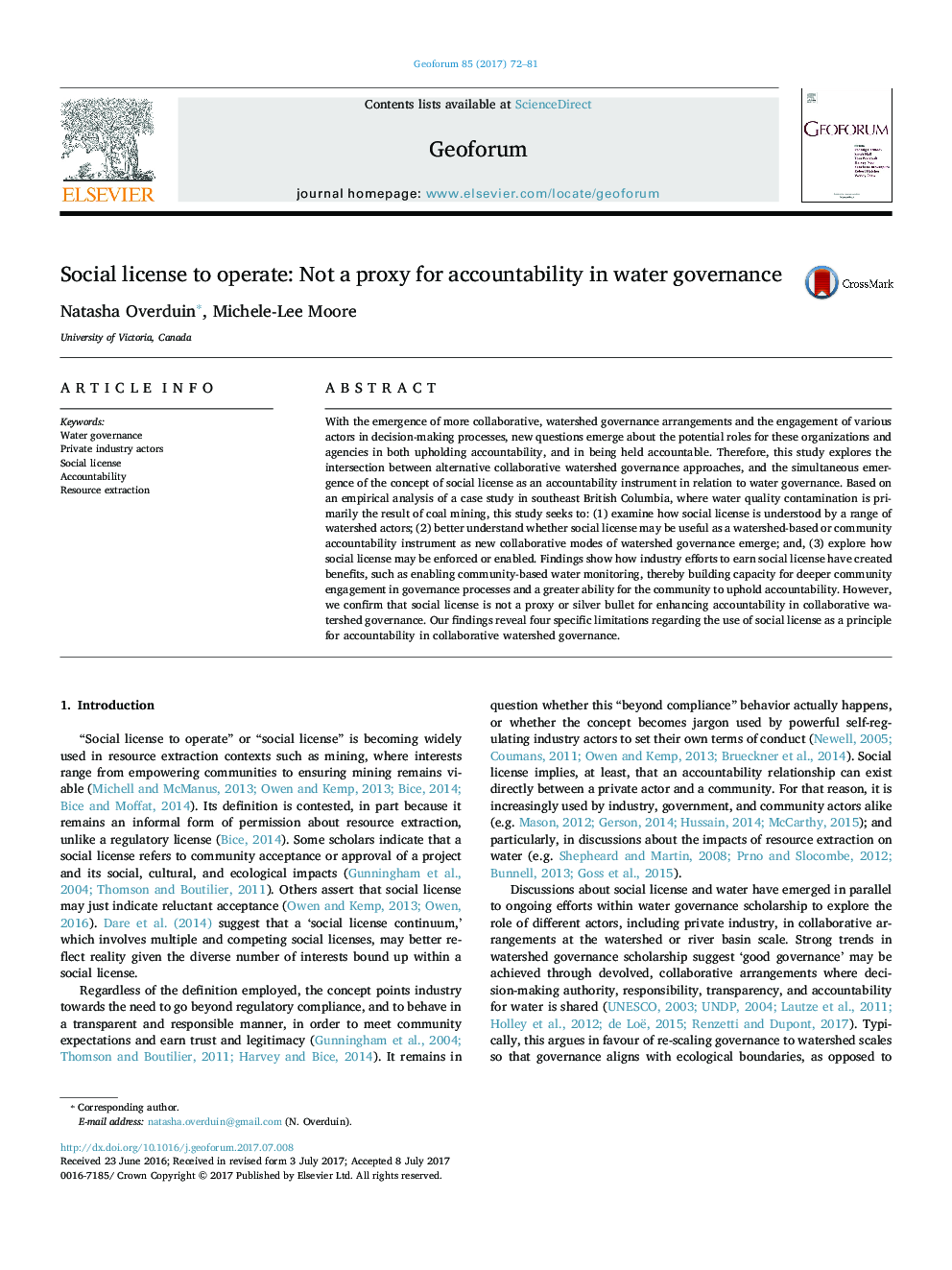| Article ID | Journal | Published Year | Pages | File Type |
|---|---|---|---|---|
| 5073168 | Geoforum | 2017 | 10 Pages |
Abstract
With the emergence of more collaborative, watershed governance arrangements and the engagement of various actors in decision-making processes, new questions emerge about the potential roles for these organizations and agencies in both upholding accountability, and in being held accountable. Therefore, this study explores the intersection between alternative collaborative watershed governance approaches, and the simultaneous emergence of the concept of social license as an accountability instrument in relation to water governance. Based on an empirical analysis of a case study in southeast British Columbia, where water quality contamination is primarily the result of coal mining, this study seeks to: (1) examine how social license is understood by a range of watershed actors; (2) better understand whether social license may be useful as a watershed-based or community accountability instrument as new collaborative modes of watershed governance emerge; and, (3) explore how social license may be enforced or enabled. Findings show how industry efforts to earn social license have created benefits, such as enabling community-based water monitoring, thereby building capacity for deeper community engagement in governance processes and a greater ability for the community to uphold accountability. However, we confirm that social license is not a proxy or silver bullet for enhancing accountability in collaborative watershed governance. Our findings reveal four specific limitations regarding the use of social license as a principle for accountability in collaborative watershed governance.
Related Topics
Social Sciences and Humanities
Economics, Econometrics and Finance
Economics and Econometrics
Authors
Natasha Overduin, Michele-Lee Moore,
